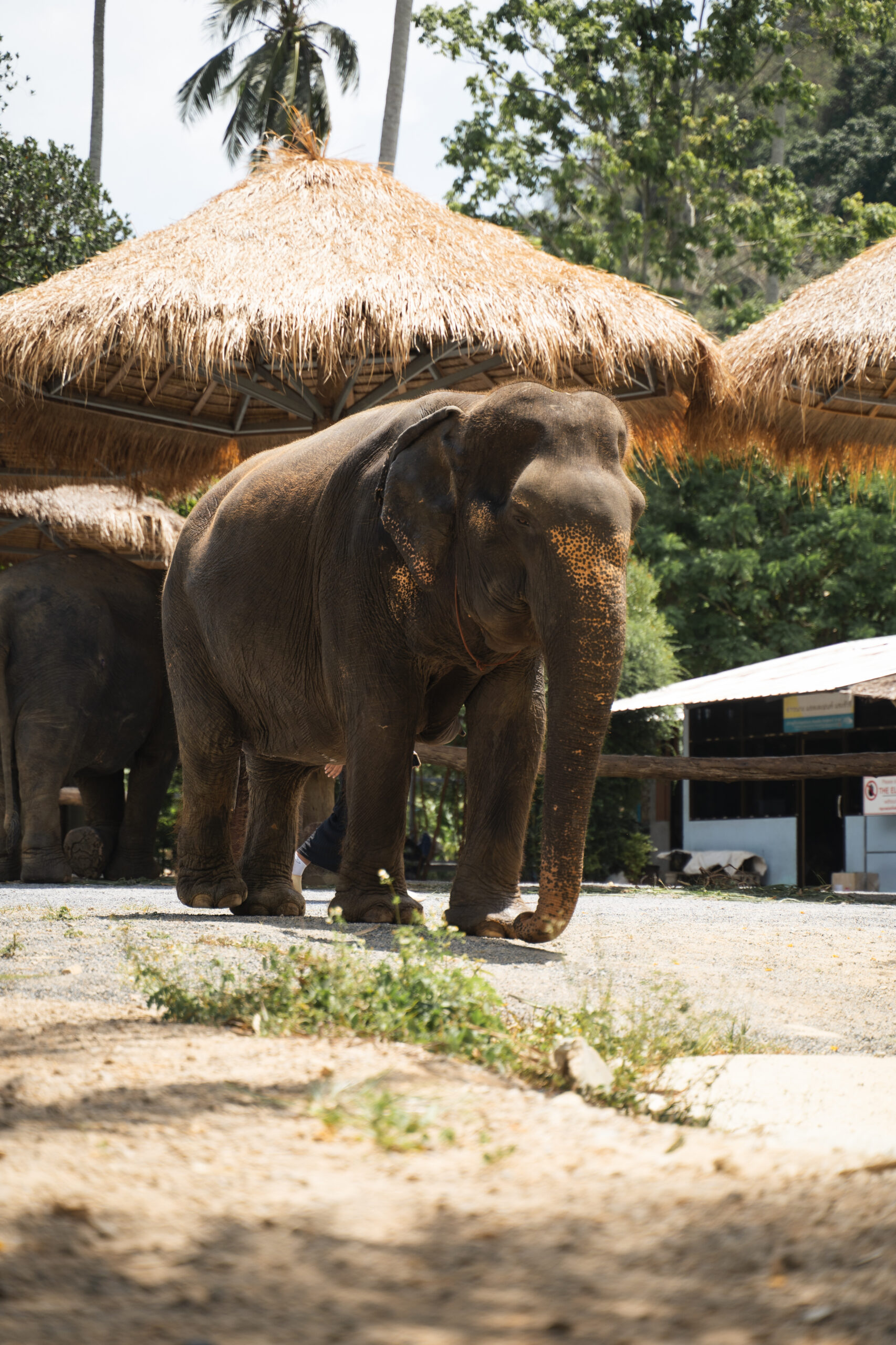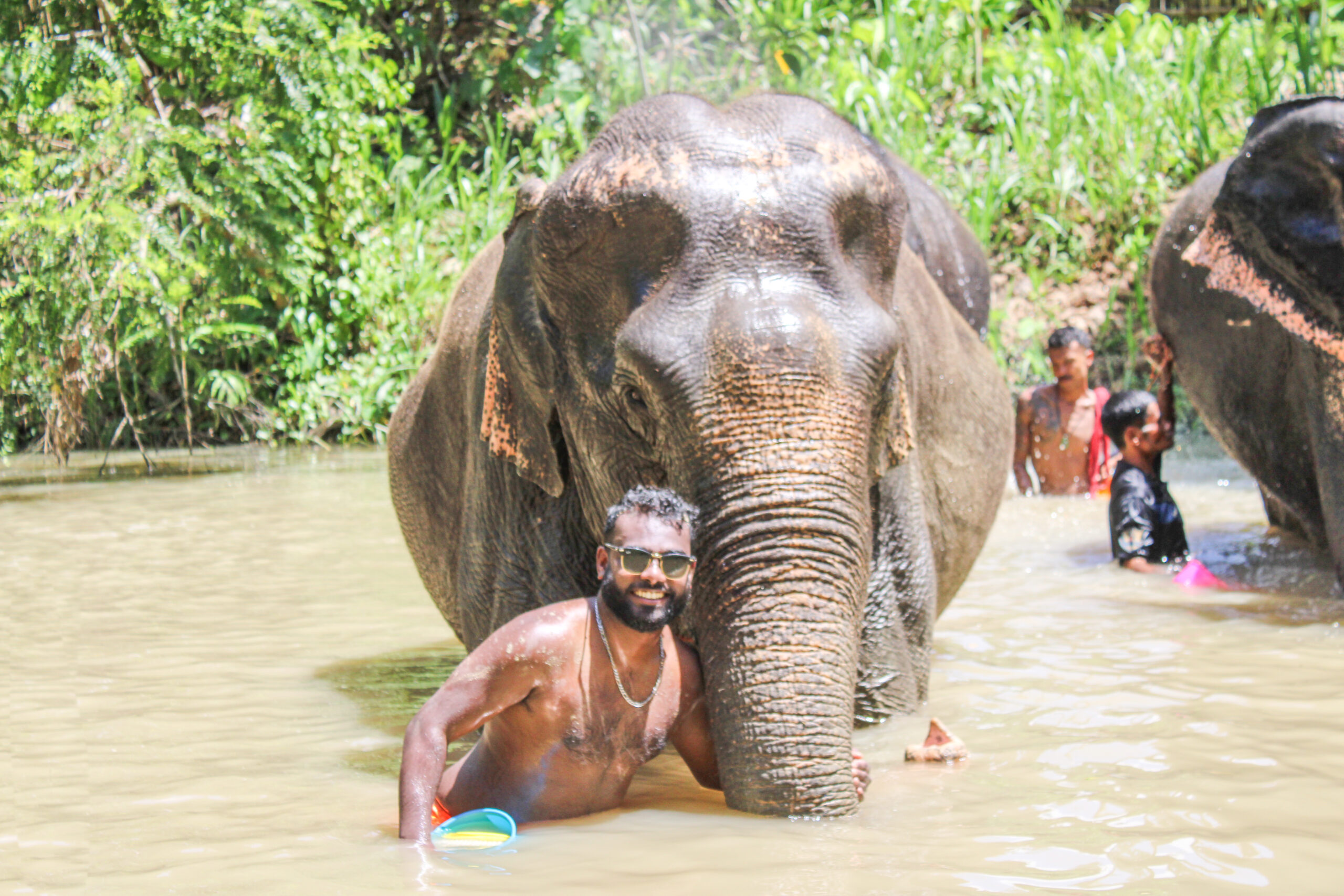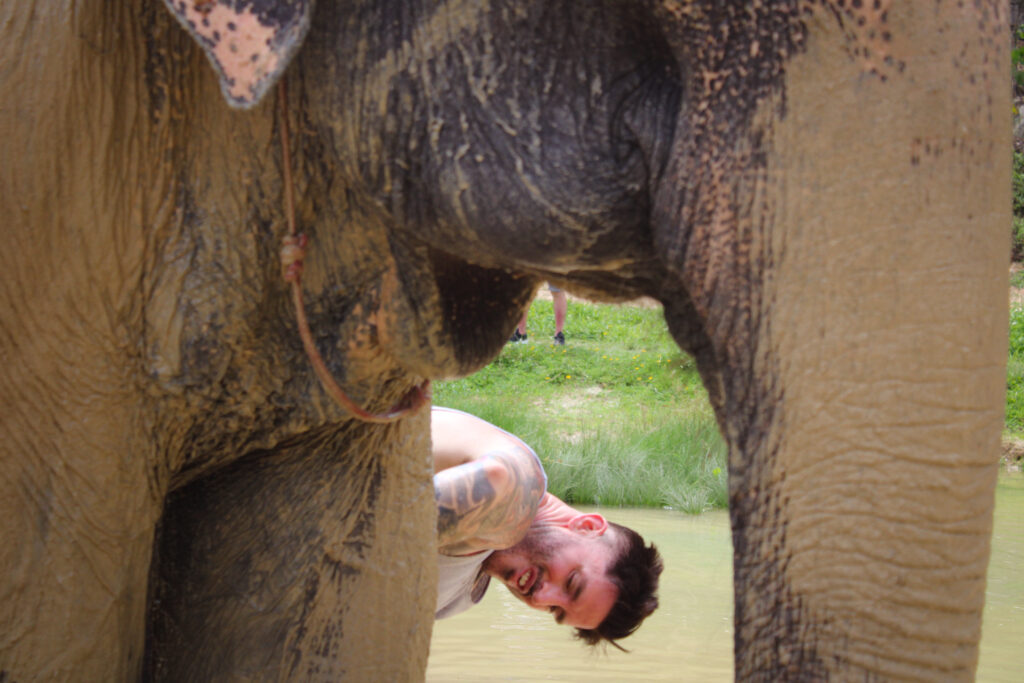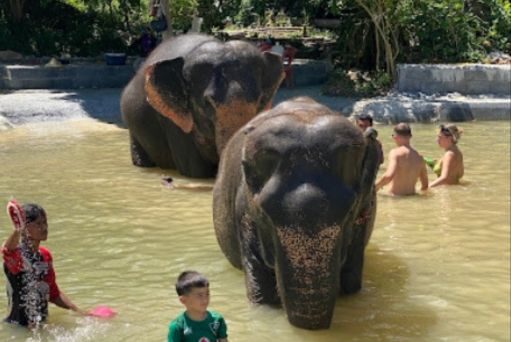
When it comes to magnificent creatures, Thai elephants truly captivate the imagination. These majestic animals are revered in Thai culture and hold a special place in the hearts of the locals. Known for their impressive size and gentle nature, they have become a symbol of strength and wisdom in Thailand.
Thai elephants are the largest species of land mammal and can reach heights of up to 10 feet and weigh up to 12,000 pounds. They are characterized by their long trunks, which are not only used for drinking water or picking up food but also for making a variety of sounds. Their large, floppy ears not only give them an adorable appearance but also help them cool down in the hot Thai climate. These remarkable creatures are also incredibly intelligent and have been known to display remarkable problem-solving skills. With their immense power and grace, observing Thai elephants in their natural habitat is an awe-inspiring experience.
The Rich Cultural Significance of Thai Elephants
Thai elephants hold a profound cultural significance in Thailand. These majestic creatures have been revered and respected for centuries, symbolizing power, strength, and prosperity in Thai culture. They have played vital roles in traditional festivals, religious ceremonies, and important royal processions. The close connection between the Thai people and elephants can be seen in the intricate artwork, literature, and folklore that depict these gentle giants. Thai elephants are not only viewed as national treasures but are also regarded as spiritual beings and bringers of good luck. Their endearing qualities and cultural importance have made them an integral part of Thai identity.
Thai elephants have been an inspiration for various art forms, from traditional dance performances to intricate wood carvings. Their influence can be seen in the stunning designs of Thai architecture, where elephant motifs and statues are often incorporated to symbolize strength and harmony. Additionally, elephants hold a significant role in Thai history, dating back to the ancient kingdom of Ayutthaya. These magnificent animals were deployed in battles, carrying warriors into combat. Today, Thai elephants continue to captivate locals and tourists alike, showcasing their cultural significance through activities such as elephant shows, rides, and interactions. Their presence serves as a reminder of the deep-rooted connection that the Thai people have with their heritage and the importance of preserving this unique cultural symbol.
Exploring the Threats Faced by Thai Elephants
Thai elephants face a multitude of threats that put their survival at risk. One of the major challenges is habitat loss. Rapid urbanization and deforestation for agriculture and infrastructure development have resulted in the destruction of critical elephant habitats. As their habitats shrink, elephants have to wander into human settlements to find food, which often leads to conflicts with local communities. This not only endangers the livelihoods of farmers but also puts the elephants at risk of injury or even death due to human-elephant conflicts.
Additionally, poaching poses a significant threat to Thai elephants. Despite being protected by law, elephants continue to be targeted for their ivory tusks. The demand for ivory in the black market drives poachers to relentlessly pursue these majestic creatures. The cruel and illegal act of poaching not only kills elephants but also disrupts their social structures, as usually, it is the older, dominant males that are targeted. This results in a skewed sex ratio within elephant populations, impacting their mating dynamics and overall genetic health.
The Impact of Poaching on Thai Elephant Populations
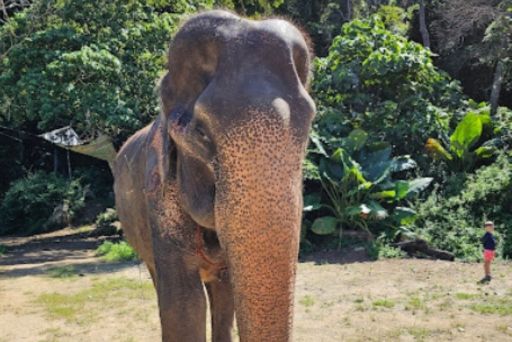
Poaching has severely affected the population of Thai elephants, posing a significant threat to their survival. The demand for ivory and illegal wildlife trade have driven poachers to target these magnificent creatures for their tusks. With their large tusks fetching high prices in black markets, elephants have become easy targets for poachers seeking quick profits. This rampant poaching has not only led to the loss of numerous elephants but has also disrupted the delicate balance of Thailand’s ecosystems.
The impact of poaching on Thai elephant populations extends beyond just the loss of individual animals. Elephants play crucial roles in maintaining the health of their habitats. Their foraging habits help maintain the balance of plant and animal species, aiding in the dispersal of seeds and creating clearings in dense forests. The loss of these gentle giants disrupts the natural ecosystem functioning, leading to cascading effects that can negatively impact other plant and animal species. Thus, the consequences of poaching are far-reaching, threatening not only the elephants but also the entire biodiversity of Thailand.
Overcoming the Challenges of Habitat Loss for Thai Elephants
Habitat loss poses a major threat to the survival of Thai elephants. As human populations expand and develop, they encroach upon the natural habitat of these magnificent creatures. Deforestation and land conversion for agriculture and infrastructure have resulted in the loss of crucial elephant habitats, forcing them into smaller, fragmented areas. This fragmentation disrupts their social structure and limits their access to food and water sources, putting their overall well-being in jeopardy.
To address this grave challenge, efforts are being made to restore and create protected areas for Thai elephants. Conservation organizations and government initiatives are working towards increasing the size and connectivity of elephant habitats. These measures aim to provide the elephants with larger, more suitable territories where they can freely roam and access the resources they require for their survival. Additionally, reforestation programs are being implemented to restore the natural vegetation that elephants depend on, promoting a healthier ecosystem for both them and other wildlife species. By overcoming the challenges of habitat loss, we can offer these majestic creatures a chance to thrive and ensure their long-term survival in the wild.
Thai Elephant Conservation Efforts: A Step in the Right Direction
Thai elephant conservation efforts have seen significant progress in recent years, marking a positive step in the right direction. Various organizations and local communities have committed themselves to safeguarding the future of these magnificent creatures. One notable initiative is the establishment of protected areas and national parks where elephants can roam freely and receive adequate protection from poaching and habitat loss. These sanctuaries offer a safe haven for elephants, allowing them to thrive in their natural habitats without the threat of extinction hanging over their heads.
Additionally, conservation projects have focused on promoting sustainable tourism that supports the welfare and well-being of elephants. Responsible elephant tourism practices, such as ethical elephant sanctuaries and guided encounters, have gained popularity among visitors. These initiatives aim to provide a positive experience for tourists while ensuring the elephants are treated with respect and care. By raising awareness about the importance of responsible elephant tourism, these efforts contribute to the conservation of Thai elephants by generating income that can be invested in their protection and rehabilitation.
• Protected areas and national parks have been established to provide a safe habitat for elephants
• These sanctuaries protect elephants from poaching and habitat loss
• Conservation projects promote sustainable tourism that supports elephant welfare
• Ethical elephant sanctuaries and guided encounters are gaining popularity among visitors
• Responsible tourism ensures elephants are treated with respect and care
• Awareness about responsible elephant tourism helps generate income for their protection
The Role of Tourism in Thai Elephant Protection

As one of Thailand’s most iconic animals, elephants play a significant role in the country’s culture and history. With the rise in tourism, these gentle giants have become a major attraction for visitors from around the world. However, the influx of tourists has both positive and negative implications for Thai elephant protection.
On one hand, tourism provides an opportunity for the conservation of Thai elephants. Many elephant sanctuaries and rescue centers rely on income generated from tourists to fund their operations. These organizations offer ethical elephant experiences, promoting responsible tourism practices and educating visitors about the importance of elephant welfare. By participating in these programs, tourists not only contribute to the well-being of these magnificent creatures but also support local communities that depend on elephant tourism.
However, the surge in tourist demand has also led to a dark side of elephant tourism. Some establishments exploit elephants for profit by subjecting them to cruel practices, such as riding, performing, or forced interaction with tourists. These activities often involve harsh training methods and inadequate living conditions, compromising the well-being and long-term health of the elephants. Tourists must be aware of this issue and choose only responsible elephant experiences that prioritize the animals’ welfare.
The role of tourism in Thai elephant protection is a complex issue with both positive and negative aspects. While it can contribute to the conservation of elephants and support local communities, responsible tourism practices must be prioritized to ensure the well-being of these majestic creatures. By choosing ethical experiences and spreading awareness, tourists can play a vital role in protecting Thai elephants for generations to come.
The Importance of Education and Awareness in Saving Thai Elephants
Thai elephants hold a significant place in the country’s culture and history. To ensure the conservation of these magnanimous creatures, it is crucial to emphasize the importance of education and awareness. By educating people about the threats faced by Thai elephants and the urgent need for their protection, we can instill a sense of responsibility and inspire action.
Through education, individuals can learn about the negative impacts of activities such as poaching and habitat loss on Thai elephant populations. This knowledge can then be spread through awareness campaigns, reaching a wider audience and creating a ripple effect. By actively engaging with the public and fostering a greater understanding of the conservation challenges faced by Thai elephants, we can encourage individuals to make informed choices, support conservation efforts, and contribute to the preservation of these majestic animals.
Frequently Asked Questions
Why are Thai elephants considered magnificent?
Thai elephants are considered magnificent because of their grand size, intelligent behavior, and majestic presence.
What is the cultural significance of Thai elephants?
Thai elephants hold a rich cultural significance in Thailand, where they have been revered for centuries as symbols of power, strength, and royalty.
What are the threats faced by Thai elephants?
Thai elephants face various threats including poaching, habitat loss, human-elephant conflict, and illegal wildlife trade.
How does poaching affect Thai elephant populations?
Poaching has a devastating impact on Thai elephant populations as it leads to a decline in their numbers and disrupts the natural balance of ecosystems.
What challenges do Thai elephants face due to habitat loss?
Habitat loss poses challenges for Thai elephants as it reduces their available space, food sources, and leads to increased human-elephant conflicts.
Are there any ongoing efforts to conserve Thai elephants?
Yes, there are ongoing conservation efforts in Thailand aimed at protecting and preserving Thai elephants, such as creating protected areas and implementing stricter laws against poaching.
What role does tourism play in Thai elephant protection?
Tourism can play a positive role in Thai elephant protection by promoting responsible elephant tourism practices and raising awareness about the importance of conservation.
Why is education and awareness important in saving Thai elephants?
Education and awareness are crucial in saving Thai elephants because they help people understand the challenges faced by these magnificent creatures and empower them to take action in their conservation.



